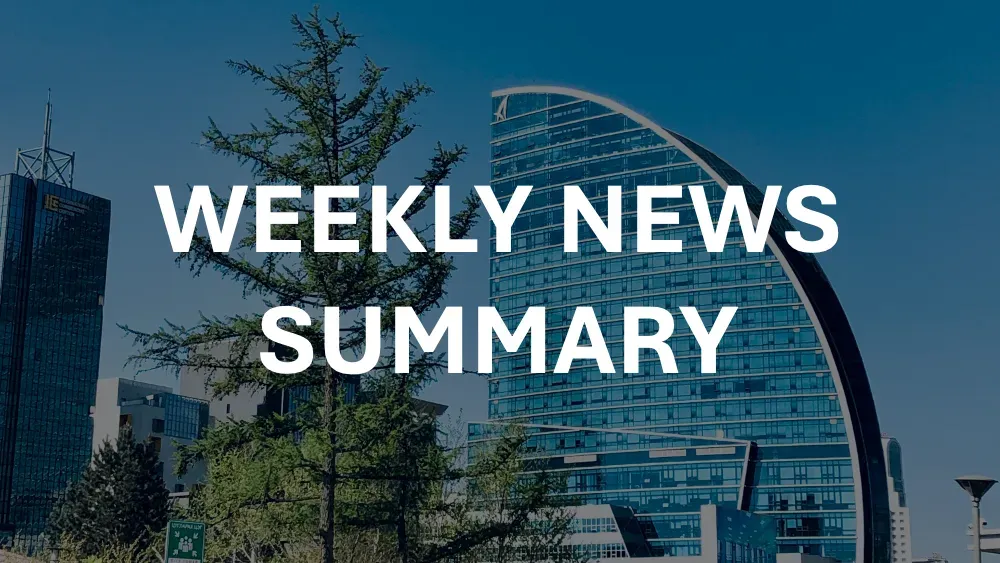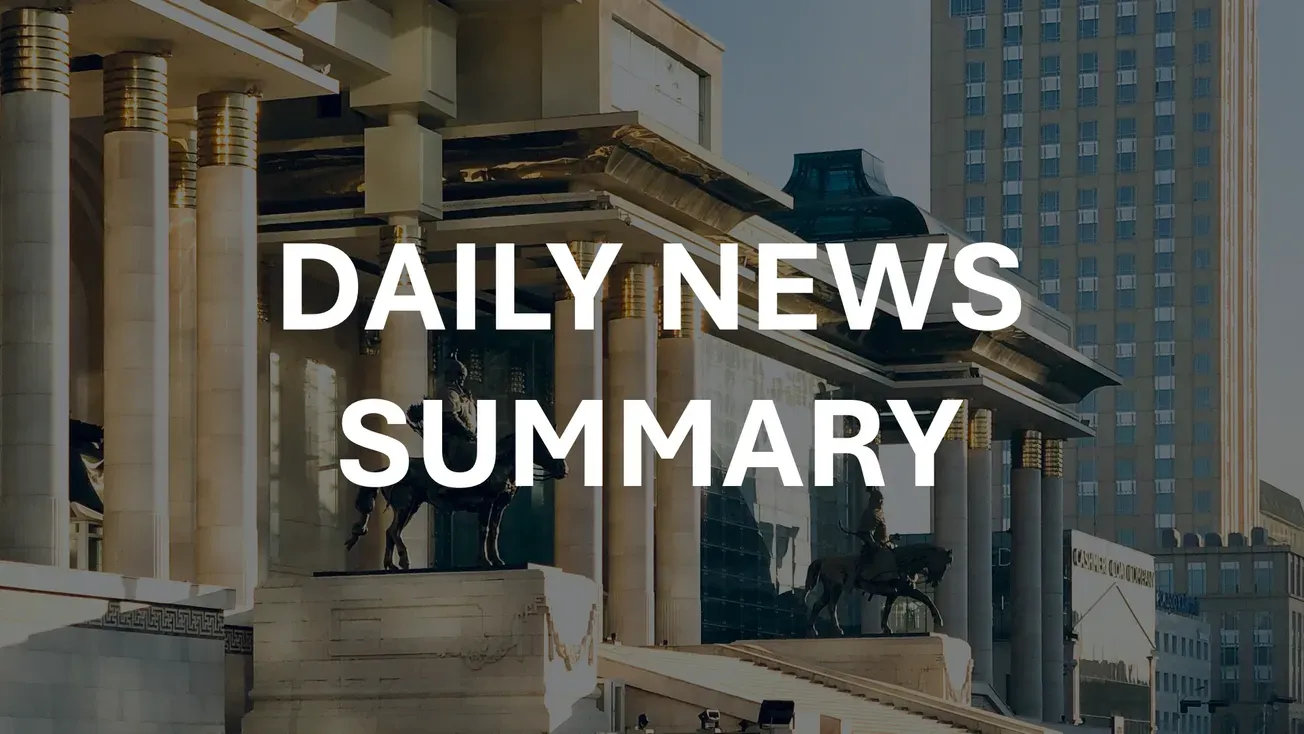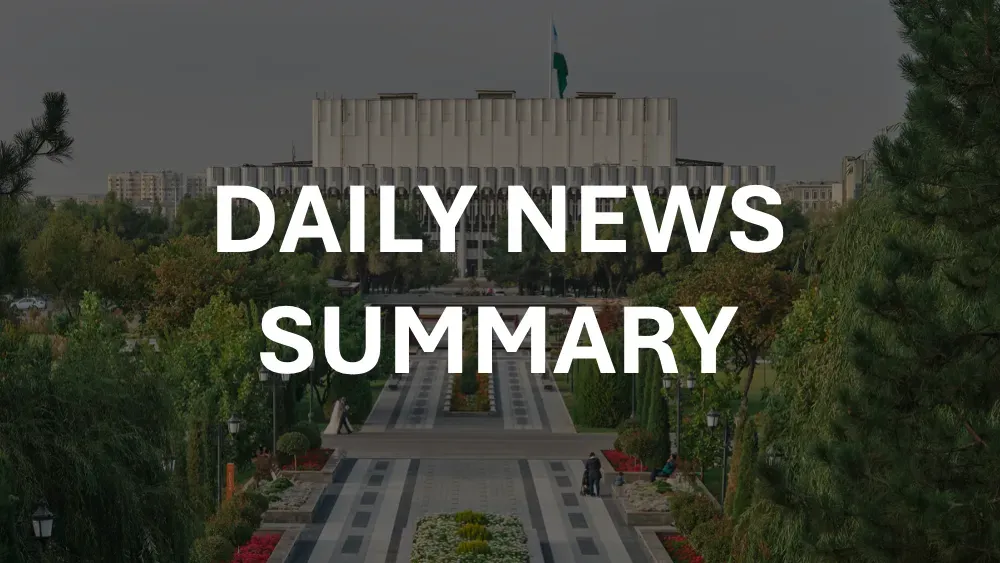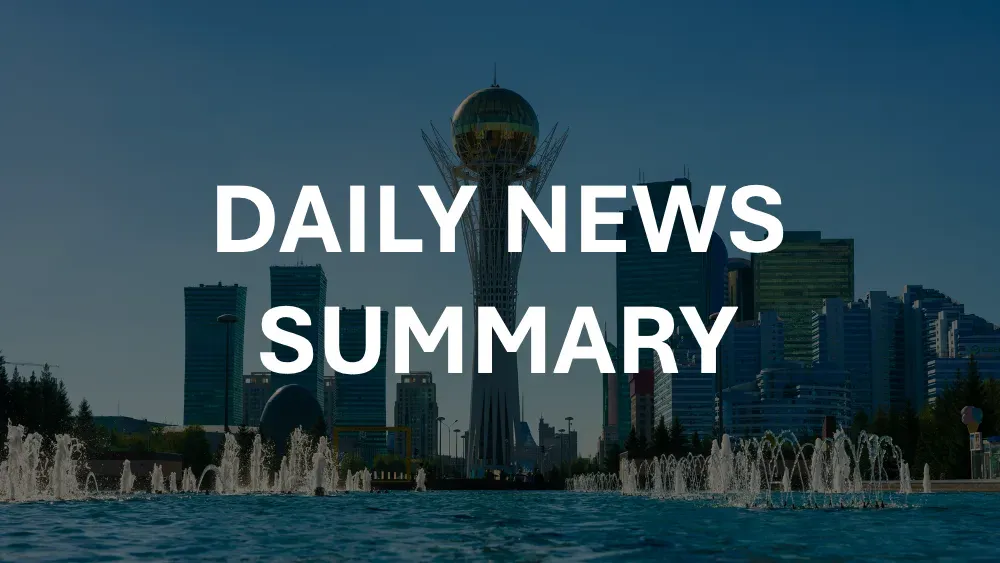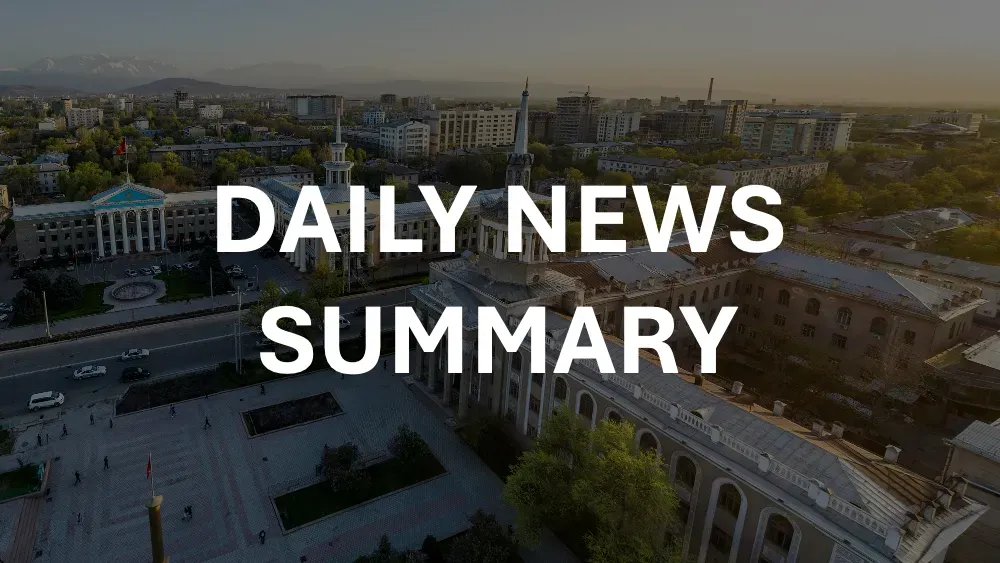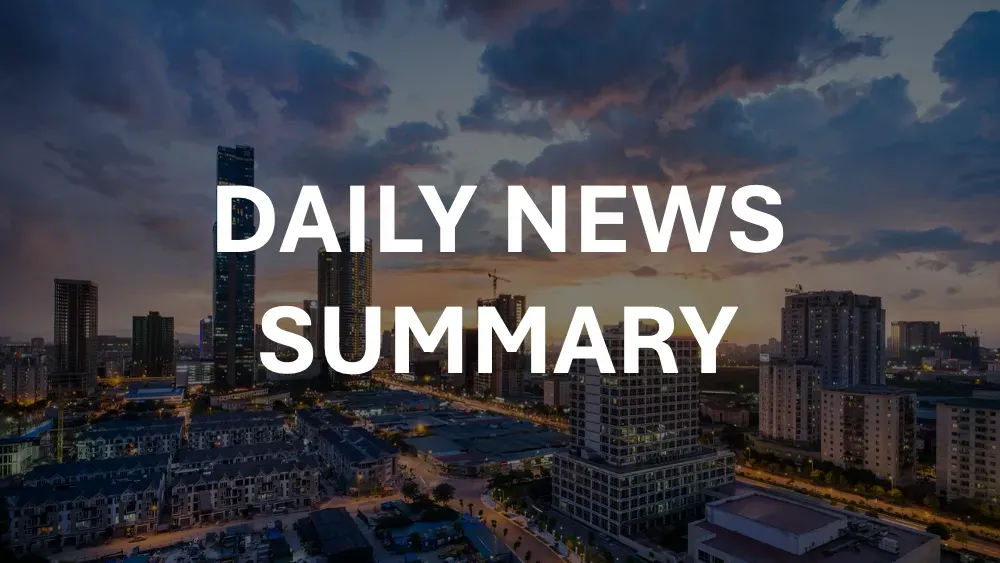This weekly digest showcases just 10 stories. Daily subscribers receive comprehensive intelligence briefs with 40 of the top stories organized by category. Don't miss the stories that matter.
Subscribe to Daily →
August 22, 2025 to August 28, 2025
This week's top 10 stories from Mongolia, selected from our daily intelligence briefs.
1. Drug and Medical Supply Disruption Looms After Unpaid Hospital Bills Strain Distributors
Mongolia’s unified pharmaceutical association warned on Aug. 28 that it may suspend deliveries of most drugs and medical supplies after mounting unpaid bills from hospitals and health facilities eroded distributors’ liquidity. The association says delayed payments beyond contract terms have turned into large carryover debts — unpaid hospital obligations now represent roughly 40% of the sector’s working capital — forcing distributors to limit supplies to emergency and life‑saving items as bank financing is exhausted and foreign supplier terms tighten.
The association, led by Executive Director I. Baljinnyam of the “Em” Association, cautioned that even if arrears are settled, restocking would take at least 60 days because of production and import lead times, raising a substantive risk of medicine and supply shortages by year‑end. Officials warn the sector could face a full shutdown if payment delays continue, a scenario that would have systemic implications for healthcare provision and require urgent fiscal or policy intervention.
From daily brief: 2025-08-29
2. Government Sets Up Task Forces to Boost Mongolia’s Share from Oyu Tolgoi, Engages Rio Tinto Leaders
Mongolia’s Cabinet Secretariat Chief S. Byambatsogt met with Rio Tinto Mongolia executives to press for higher national returns from the Oyu Tolgoi copper project and signalled continuity with existing policy while escalating oversight. The government has activated task forces established under a 2021 parliamentary resolution: Finance Minister B. Javkhlan will lead negotiations to revise project financing interest terms; Industry and Minerals Minister G. Damdinnnyam will determine the state’s stake in licenses for Shivee Tolgoi and Javkhlant held by Ontre within the Oyu Tolgoi area; and Justice Minister L. Munkhbaatar will defend Mongolia’s position in ongoing London arbitration.
The move, framed as ensuring “both the state and investors win together,” indicates Mongolia is prepared to use legal and financial levers to capture greater value from one of its largest mining assets, while keeping direct engagement with Rio Tinto leadership. For international stakeholders this raises the prospect of renegotiated financing costs, altered license stakes, and potentially protracted arbitration — factors that could affect project economics, timelines and investor risk assessments.
From daily brief: 2025-08-27
3. Agriculture Rebounds to Lead Growth as Mining Slows, Shaping Economic Outlook
Mongolia’s GDP grew 5.6% in H1 2025, driven chiefly by a rebound in food, agriculture and light industry, which together contributed 3.6 percentage points to overall growth, the National Statistics Office reports. After deep contractions in 2023 (-8.9%) and 2024 (-28.7%) tied to the severe dzud, agriculture recorded 3.6% growth in the first seven months of 2025; authorities and experts attribute the recovery in part to government programs such as “Food Revolution,” “Atrar IV,” and “White Gold.”
The rebound contrasts with a 9.3% year‑on‑year fall in mining output over seven months and roughly MNT 1 trillion decline in mining sales, highlighting continued exposure to commodity cycles. The government projects GDP growth of about 5.5% in 2026 and signals agriculture’s stable development as central to that outlook. Analysts caution that securing long‑term resilience will require diversifying from herding into food processing and export capacity to reduce vulnerability to climate shocks and volatile commodity markets.
From daily brief: 2025-08-23
4. Draft 2026 Budget Sets Balanced Revenue at ₮31.6T and Expenditure at ₮33T, Targets 2% Primary Surplus
Mongolia’s Ministry of Finance submitted the 2026 budget draft to the Cabinet proposing balanced revenues of ₮31.6 trillion (30.9% of GDP) against total expenditures of ₮33.0 trillion (32.2% of GDP), with a targeted primary surplus of ₮2.0 trillion (2% of GDP). The plan holds current spending at 24% of GDP despite a nominal rise to ₮25.1 trillion (up ₮1.1 trillion year‑on‑year), signalling a focus on fiscal consolidation while allowing for higher nominal outlays.
The government projects 5.7% economic growth in 2025 and expects exports to increase from $15.8 billion in 2025 to $16.6 billion in 2026, driven by improved rail infrastructure and higher flows at the Gashuunsukhait, Shiveekhüren and Khangi border posts alongside rising copper and gold output. Medium‑term policy aims to sustain 5–6% growth and preserve macroeconomic stability, indicating a cautious mix of infrastructure‑led export growth and fiscal prudence.
From daily brief: 2025-08-22
5. Tri-Nation Railway Talks in Ulaanbaatar to Boost Border Train Exchanges and Transit Capacity
Railway delegations from China, Russia and Mongolia will meet in Ulaanbaatar from August 25–29 to coordinate freight and passenger flows at border crossings and boost capacity along the central Asia–Europe transit corridor that runs through Mongolia. The talks aim to raise daily train exchanges—particularly with China, which currently averages 15+ trains per day—to address strong cargo growth via UBTZ; in 2024 UBTZ handled 33.4 million tonnes (5.3 million tonnes of transit cargo) with 62% of volume tied to foreign trade.
Officials say that adding just one full consist (~50 wagons) per day could yield roughly 1.5 million tonnes annually and about US$14 million in revenue, a material gain for Mongolia’s export-dependent budget (mining exports supply ~30% of state income). Improved throughput and streamlined border operations would strengthen the corridor’s competitiveness as regional trade expands and could materially affect logistics planning and revenue flows for international operators and shippers.
From daily brief: 2025-08-22
6. Uranium Deal for Zuuvch-Ovoo Touted as Model as Mongolia Moves to Reopen Exploration
At the Mongolia Economic Forum, government officials and industry leaders presented the Zuuvch-Ovoo uranium investment agreement between Badrakh Energy and France’s Orano as a template for reopening Mongolia’s strategic minerals sector and reviving stalled exploration. The project—expected to supply roughly 2–4% of global uranium—will use in-situ recovery technology and emphasizes a royalty-based revenue model with explicit benefit‑sharing provisions, including local allocations and safeguards to compensate Mongolia if the national take falls below 50%, according to Minister of Industry and Mineral Resources G. Damdinyam and Erdenes Mongol CEO S. Narantsogt.
Officials signalled regulatory shifts to make licenses easier to obtain but more expensive to hold, and floated application‑based licensing to deter speculative holders and attract “real explorers.” They also discussed aligning mining, sovereign wealth and FDI laws to enhance predictability and transparency for investors. The Zuuvch-Ovoo contract is being promoted as a benchmark for subsequent strategic mineral investments as Mongolia seeks to balance investor incentives with stronger state oversight (sources: gogo.mn, news.mn).
From daily brief: 2025-08-29
7. 2026 Draft Budget Channels ₮3.7 Trillion to Power Projects, Prioritizing New Thermal and Hydro Capacity
Mongolia’s 2026 draft budget allocates roughly ₮3.7 trillion to energy-sector investments to shore up winter supply and expand baseload capacity, with the cabinet set to submit the proposal to parliament in early October. The package prioritizes several generation projects: a 660 MW thermal plant in Bayanjargalan (Tuv), a 450 MW facility at Tavan Tolgoi, a 50 MW plant in Dalanzadgad, a 79 MW heat source in Nalaikh, and the 90 MW Erdeneburen hydropower project, alongside transmission upgrades (220 kV lines and substations) on Choyr–Sainshand, Buereljuut–Sergelen, Baganuur–Choyr and Mandalgovi–Arvaikheer corridors.
The move follows urgent repairs and contingency planning after operational problems at CHP-3 raised concerns about Ulaanbaatar’s winter resilience, signaling a shift toward rapid capacity additions funded through public investment and external financing windows. For international investors and planners, the package signals clear near-term priorities (thermal-heavy, with targeted hydro and grid reinforcement) and a policy emphasis on mitigating seasonal supply risk, though timelines, financing terms and environmental or fuel-source details remain to be clarified as the bill advances.
From daily brief: 2025-08-28
8. Zero-Carbon Industrial Park Proposed for Sukhbaatar with 3.5 Mt Aluminum Capacity
Mongolia’s Minister of Industry and Mineral Resources G. Damdinyam met with China’s Zero Carbon Engine Technology Group to review a proposal to build a benchmark “zero‑carbon” industrial park in Sukhbaatar Province centered on aluminum production of 3.5 million tonnes per year. Drawing on the Houlind Goal coal‑based industrial model, the plan would combine a renewable power plant, energy storage system and a thermal power station to provide the stable electricity needed for large‑scale smelting and downstream processing.
The ministry signalled policy support, noting the project’s scale, technology requirements and high capital intensity as strategic for Mongolia’s industrialization. If realized, the development would materially expand domestic heavy industry and power infrastructure, but would also require substantial investment, long lead times and careful scrutiny of the claimed “zero‑carbon” credentials given the inclusion of thermal generation.
From daily brief: 2025-08-27
9. Tax Package Proposes New PIT Brackets, Bigger Homebuyer Relief, and Wider VAT Base With Digital Services Included
Mongolia’s parliamentary working group has proposed a comprehensive tax overhaul that restructures personal income tax (PIT), expands homebuyer and education reliefs, and broadens value‑added tax (VAT) coverage to include digital and cross‑border services. The draft introduces eight PIT brackets (annual income up to MNT 9.6 million exempt; top rate 20% above MNT 360 million) and would zero out PIT for seasonal and gig workers; it also adds a 15% corporate tax band for profits of MNT 6–10 billion to discourage profit‑splitting. Homebuyer relief would rise from MNT 6 million to MNT 15 million, and one child’s university tuition (domestic or foreign) would be fully deductible from PIT.
On VAT, the plan abandons more than 70 category exemptions in favor of a consumer‑side refund mechanism—100% refund for monthly purchases up to MNT 500,000, 50% for MNT 500,001–800,000, and 20% above that—and lowers the VAT registration threshold to MNT 400 million. Crucially, online and foreign digital services (streaming, e‑commerce imports) would be taxed to level the playing field for domestic providers, a change championed by MP Kh. Gankhuyag as promoting fairness while reducing household tax burdens.
From daily brief: 2025-08-26
10. Government Moves to Capture 34% Stake in Erdenet Stockpile Projects as State Firms Face Efficiency Mandates
Mongolia’s Cabinet has launched a task force to reclaim state participation and revenues from low-grade ore “stockpile” operations tied to Erdenet Mining, ordering either a 34% state equity stake or equivalent payments from operators Achiat Ikht, Erdenmn and Zes Erdene by October. Officials say prior contract and tender reforms reduced abuses but that ongoing “stockpile theft” persists: Achiat Ikht reportedly recorded MNT 1.7 trillion in sales over the past decade while paying only MNT 30 billion for stockpile use; Erdenmn, which currently pays dividends to Erdenet and holds 25% of the company, would see that stake raised to 34%; Zes Erdene is accused of fee avoidance under a “pilot” label. Revenues recovered are slated for the National Wealth Fund.
The move comes alongside a broader push to improve state enterprise performance: loss-making firms face 14-day corrective orders after audits flagged Khutul Cement’s severe negative returns (“spends 1.7 tugriks to earn 1 tugrik”) and alleged overpricing by Darkhan Metallurgical Plant in sales of billet to Erdenet. The Cabinet has set an October deadline to resolve the stockpile issue, signaling tighter enforcement of resource-sector contracts and greater fiscalization of previously opaque extractive revenues.
From daily brief: 2025-08-28
These weekly highlights are a small sample of what's happening. Daily subscribers get comprehensive briefings with 40 top stories that connect the dots between events, track developing stories, and provide the context you need for informed decision-making.
Upgrade to Daily →
